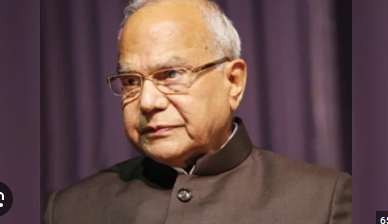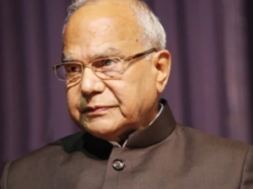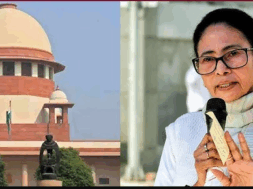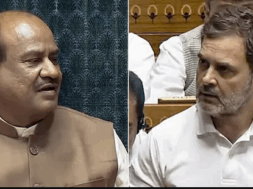
Manas Dasgupta
NEW DELHI, Feb 3: The Punjab Governor Banwarilal Purohit, at constant loggerhead with the Aam Aadmi Party government in the state, on Saturday resigned from his position as State’s Governor and Administrator of Union Territory Chandigarh citing “personal” and “other commitments” as reason for the move.
Mr Purohit’s resignation came a day after he met Union Home Minister Amit Shah in Delhi on Friday. He sent his resignation letter to President Droupadi Murmu. In his letter, Mr Purohit wrote “Due to my personal reasons and certain other commitments, I tender my resignation from the post of the Governor of Punjab and Administrator, Union Territory, Chandigarh. Please accept the same and oblige.”
Mr Purohit has been Punjab’s Governor since August 2021. The resignation follows a bitter and ongoing war of words between the Governor and state Chief Minister Bhagwant Mann. In the past two years, there have been several occasions which saw tiffs between the Governor and the AAP Chief Minister Bhagwant Mann surrounding different issues in Punjab.
Last August, Mr Purohit sent a letter to the Chief Minister, warning him that he could recommend President’s rule in the state and also initiate criminal proceedings if his letters are not answered. In his latest communication to Mr Mann, Governor Purohit reiterated that he was not getting any reply from him on his previous letters, and warned him that he could send a report to the President on “failure of constitutional mechanism.”
The Governor had “threatened the peace-loving people” of the state, said Mr Mann replying to the letter, underscoring that law and order is in complete control. The conflict between the two constitutional authorities had reached the Supreme Court also with the Mann government complaining that the governor was deliberately holding on the bills passed by the state Assembly to deny benefits to the people of the state.
The Supreme Court in last November had clarified the role and responsibilities of a Governor in relation to Bills passed by state legislatures. The Court ruled that the Governor cannot indefinitely delay or withhold assent to a Bill, emphasising that such actions undermine the legislative process and the supremacy of the elected representatives.
In a verdict on a petition filed by the AAP government in Punjab, the Supreme Court held, “The Governor cannot be at liberty to keep the Bill pending indefinitely without taking any action whatsoever. Failing to make a decision and keeping a duly passed Bill pending for indeterminate periods is a course of action inconsistent with that expression,” said the Supreme Court bench comprising Chief Justice of India DY Chandrachud, Justice JB Pardiwala and Justice Manoj Misra, in a 27-page judgment.
“The Governor, as an unelected Head of State, is entrusted with certain constitutional powers. However, these powers cannot be used to thwart the normal course of lawmaking by the state legislatures,” the bench added. The Punjab government has also requested a formal judicial declaration that the assembly session held on June 19 and 20 was legally conducted and that all actions taken by the House during that session were valid.
“In a parliamentary form of democracy, the true power lies with the elected representatives of the people. The Governor, an appointee of the President, serves as the titular head of state,” the Supreme Court bench said. The fundamental principle of constitutional law, consistently followed since the Constitution’s adoption, is that the Governor acts on the ‘aid and advice’ of the council of ministers, except in those areas where the Constitution has entrusted the Governor with the exercise of discretionary power, the Court said.
“This principle cements the bedrock of the constitutional foundation that the power to make decisions affecting the governance of the state, or the nation as a whole, rests fundamentally with the elected branch of government,” the Supreme Court judgment stated. “The Governor is intended to be a constitutional statesman, guiding the government on matters of constitutional concern.”













